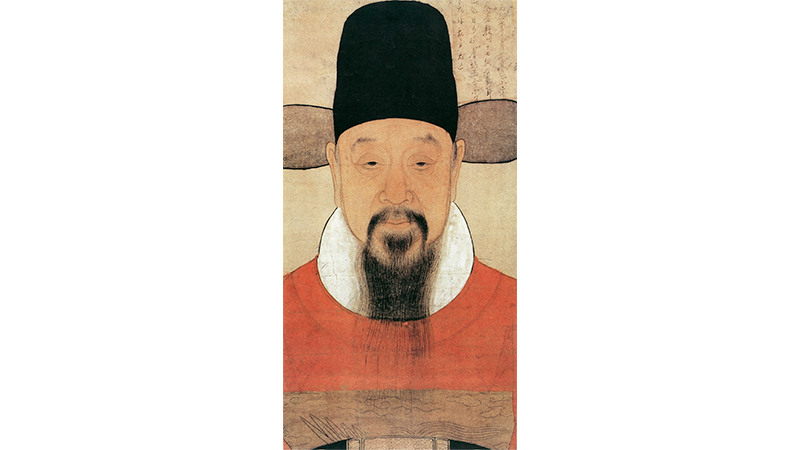

Xu Guangqi was an important early Chinese Catholic apologist and advocate for resident European missionaries in the early seventeenth century. Xu was just the kind of person that the Jesuit missionaries hoped to attract to Christianity during the Ming Dynasty. The Jesuits consciously targeted the Chinese intelligentsia, reasoning that it would be impossible to reach the Chinese masses without their help. Xu was a gifted thinker and scholar in several fields and passed the highest Chinese civil service examination in 1604, achieving appointment to the elite Hanlin Academy in Beijing. In contrast to many of his colleagues, who knew only Chinese classical literature, Xu studied in the fields of astronomy, hydraulics, and geography and translated Western books into Chinese.
Xu was born in Shanghai on April 24, 1562. He first met a Catholic missionary in 1596 in Guangdong. Intrigued by this encounter, he traveled to Nanjing in 1600 to visit Matteo Ricci, who had not yet been given permission by the emperor to become the first Jesuit to live in Beijing. Xu was baptized in 1603, taking the Christian name Paul, and the following year he began a three-year period of collaboration with Ricci in Beijing. Xu was in Shanghai mourning his father’s death when Ricci died in 1610, and while there he built a chapel adjacent to his home and saw as many as 200 become followers of Christ.
Persecution against Christians flared up several times during Xu’s life, but largely due to his efforts, the periods of persecution under the Ming emperors were sporadic. During one such period in 1616, Xu wrote an eloquent defense of the work of Catholic missionaries. “(They) are the disciples of the holy sage, their way is right, discipline strict, knowledge vast, understanding deep, hearts pure, opinion firm, and in their country they excel above most people.” He further argued that Christianity was a positive influence on China, and not incompatible with loyalty to the emperor and the ideals of Confucianism.
Xu rose steadily through the imperial bureaucracy, taking temporary retirements to his farm in Tianjin on three occasions due to illness. Because of his knowledge of astronomy and his accurate prediction of an eclipse in 1629, Xu was given the task of correcting the imperial calendar using knowledge gained from the West. He became President of the Board of Ceremonies in 1630, and helped missionaries with the translation of texts, both religious and secular, until he died of illness in Beijing on November 8, 1633. He is regarded, along with Li Zhizhao and Yang Tingjun, as one of the “three pillars” of the early Chinese Catholic church, and in 1983 Shanghai opened a park named Guangqi Garden in his honor.
(Christianity has) serving God as its foundation, saving souls as its goal, practicing love and kindness as its method, changing evil to good as its way, repentance as its discipline, blessing in heaven as the reward of doing good, eternal punishment in hell for doing evil… that all their teaching and precepts are the best according to both the principle of heaven and humankind, helping people to do good and shun evil with sincerity. Bianxue Zhangshu. Xu Guangqi.